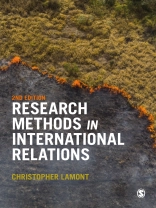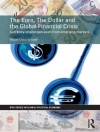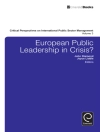The only guide to conducting research in International Relations. Covering the full breadth of methods in IR with unrivalled clarity, this best-selling textbook takes you through the entire process of doing research, from honing your question to writing up the dissertation. The engaging and jargon-free style demystifies the process of doing research, whilst helping you develop a comprehensive understanding of the strengths and limitations of different methods and methodologies.
This second edition comes with new chapters on conducting interviews and discourse analysis, as well as expanded coverage of qualitative and quantitative methods. Packed with examples, it explores the breadth of IR research today, from the long-lasting impact of colonialism to migration policy; climate change negotiations to international aid. Covering the most cutting-edge methodological developments, including critical realism, feminist, and postcolonial approaches, it helps you understand and apply research methods in world politics.
This practical introduction is essential reading for anyone setting out on their International Relations research project for the first time, at undergraduate and postgraduate levels.
Christopher Lamont is Assistant Dean of E-Track Programs and Associate Professor of International Relations at Tokyo International University, Japan.
Table des matières
Chapter 1: Methodology and Methods in International Relations
Chapter 2: Research Questions and Research Design
Chapter 3: Research Ethics
Chapter 4: Writing a Literature Review
Chapter 5: Qualitative Methods in International Relations
Chapter 6: Quantitative Methods in International Relations
Chapter 7: Mixed Methods Research in International Relations
Chapter 8: Fieldwork in International Relations
Chapter 9: Interview Research in International Relations
Chapter 10: Discourse Analysis in International Relations
Chapter 11: Case Study Research in International Relations
Chapter 12: Writing Up Your Research
A propos de l’auteur
Christopher Lamont is Dean of E-Track’s International Relations program and Vice Dean of the Graduate School of International Relations at Tokyo International University in Japan. He holds a Ph D in Politics from the University of Glasgow. He was also a Fulbright fellow at the University of Zagreb and an RCUK postdoctoral fellow at the University of Ulster. His research interests are at the intersection of global governance, technology, and international justice. He is the author of Research Methods in International Relations, now in its second edition, published by Sage. He is also co-editor (with Arnaud Kurze) of New Critical Spaces in Transitional Justice: Gender, Art, and Memory published by Indiana University Press in 2019, and Non-Western Visions of Democratization: Imagining Democracy after the Arab Spring (with Jan van der Harst and Frank Gaennsmantel), which was published by Routledge/Ashgate in 2015. His monograph, International Criminal Justice and the Politics of Compliance (Routledge/Ashgate 2010) explored the international and domestic politics of international criminal justice processes in the former Yugoslavia. In addition to his scholarly contributions, his writings have also featured in Foreign Affairs, Foreign Policy, and The Diplomat, among others.












